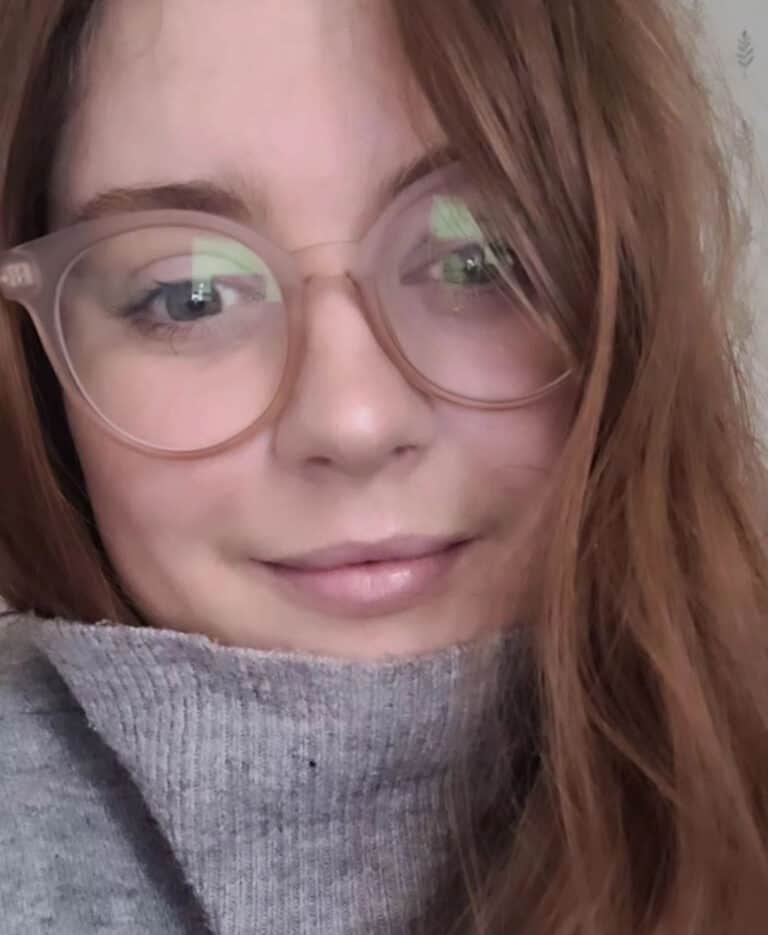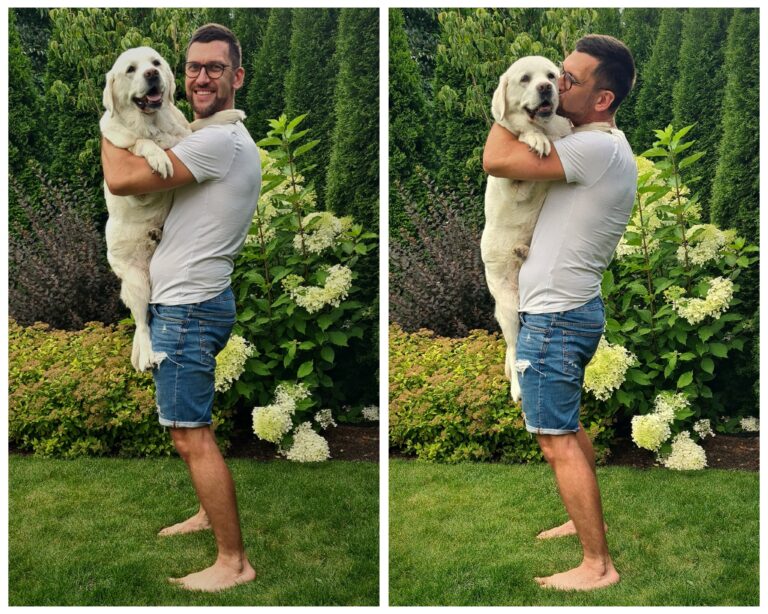ADHD and the Fight for Self-Acceptance

I remember the head counselor approaching me. She stood there, hovering over my small 14-year-old frame, and looked down at me sitting on the floor.
I was leaning against a concrete wall during the camp’s afternoon carpool.
A row of 8-year-old girls sat beside me. It was crowded and noisy, with lots of legs passing from any direction. Every inch of the bottom of the wall was covered by a human leaning against it.
The Unexpected Question
“Gilly, are you happy working here as a counselor in training?” The head counselor’s voice started alto, but made its finale soprano.
My heart dropped. Why wouldn’t I be happy to work here? The question was confusing because when I was working with kids, I was the happiest version of me.
“Of course,” I said. And then, “Why?”
The Sting of Rejection Sensitivity
Here’s the thing with me. When I’m confronted with that sort of situation where I know the answer will sting, it’s like my intentions are split in two.
The first half aims to protect my rejection sensitivity, but the other (more pressing, impulsive, and curious) half has to know why (I suck). And it must know now.
“Well, you’re almost never smiling,” she claimed.
When My Emotions and Expressions Didn’t Match
I can’t remember how I responded. I only remember that first part of the interaction. The part where a superior first told me that my body language and facial expressions were not aligned with my internal emotional state. There was a mismatch. And that was “wrong.”
This was mind-boggling to me because I later gained the reputation for being “too transparent” with my emotions.
Like it was too hard for me to hide what I was actually feeling. But at that moment, when I was 14, my heart was in heaven, but my face (I guess) emanated “hell.”
The Confusion of Rejection Sensitivity
If you’ve gotten to this point in this blog post, you may be wondering where this is going. And you know what – I bet most people would. Even mental health professionals.
Because the symptoms I’m describing here are not currently part of the Attention-Deficit/Hyperactivity Disorder (ADHD) criteria.
I’m referring to Rejection Sensitive Dysphoria (RSD; extreme sensitivity to perceived or actual criticism) and its associated emotion dysregulation, sensory sensitivities, and social challenges.
ADHD and Autism: The Neurodevelopmental Link
No, those are not limited to autism. Actually, both autism and ADHD fall under the same umbrella of neurodevelopmental disorders. So, if one of your parents is autistic, you may end up with autism, autism+ADHD, or just ADHD.
The apple doesn’t fall far from the tree, and ADHD and autism are essentially siblings when it comes to heritability (pun intended).
Missing Criteria in ADHD Diagnosis
The way the ADHD criteria are written and interpreted now, you wouldn’t know that ADHD has anything to do with the situation I just described.
But the more I do my own research, the more I see my own ADHD therapy clients, and the more I reflect on my symptoms and specific challenges before finally getting my ADHD diagnosis in my early 30s… the more I realize how emotion dysregulation plays such an important role in ADHD, especially for females.
The More Well-Known ADHD Symptoms
Now, don’t get me wrong. I had a bunch of the more well-known ADHD symptoms too (at least in middle school), like struggling with sitting still and sustaining attention on boring tasks, forgetting important things like my homework (whoops), being impulsive, and making “careless” errors on assignments and exams (especially when they were multiple choice, gosh darn it).
But I got good-enough grades. I worked my butt off, and spent double the amount of time anyone else spent to (maybe) get an 80%… but I earned As and Bs.
Sure, I was depressed, suicidal, and cutting myself… but I made it onto the Honour Roll a couple times.
Succeeding While Struggling
“She is doing well at school,” they thought. And they were right. I did well at school. But does that mean I’m not struggling?
When I took AP Psych and started more seriously deciding to make clinical psychology my career path (after abandoning my 4-year long standing dream to become a writer due to a fear of failure), I started to question whether I had ADHD.
I kept telling myself “No,” because I saw other students around me getting diagnosed, and their reputation was something like:
Well, well, well – suddenly you rise out of your average ashes with an ADHD diagnosis exactly around SAT-time. What a co-in-ci-dink.
Rejecting the ADHD Diagnosis
That wasn’t me, no, no, no. I was a rule follower. I couldn’t be labeled as someone who was trying to beat the system, so I couldn’t even humor myself with the thought that maybe what I was really struggling with was ADHD.
The Invisible Struggles of ADHD
Still, the criteria did not (and still do not) completely add up to how my specific presentation looked and (more importantly) felt. I tossed and turned at night, unable to sleep, but I wasn’t really worrying.
I was not a worrier. I was a planner, I was a recounter, I was an analyzer of social interactions and of screw-ups—
how I could fix them
and when that would happen
and why I “keep doing this.”
The Tension of Daydreaming and Falling Behind
I was a tense, stretched out rubber band, counting the minutes for each class to end, looking outside the window, daydreaming about my crush, and completely missing chunks of information discussed in class.
I could read, but I also couldn’t, because I had to read in very specific circumstances to actually digest the words. When students were given time to read in class so they wouldn’t have to at home, I fell behind.
You want me to read here? In this classroom? With all these distractions? With Little Sally sniffling and Big Julian rubbing his boogers on who-knows-what in the right corner of the room… over there—right there?
Even the thought of actually using the time to read and absorb the information was absurd to me. I knew I couldn’t do it—even as a kid. So, I caught up on my homework on weekends.
Or I lied about doing the reading, and then obviously got caught and punished, which led to less social involvement, which only fed the negative cycle of pain and distress.
Fast Forward: Finding Peace Within Myself
But that brings me to the here and now. That brings me to getting past college, a master’s degree in experimental psychology, a doctorate in clinical psychology, and my first ever book deal for a book on ADHD in females.
If we fast forward past all of the times that I sobbed and silently whispered, “I just want to kill myself,” in the shower, because that was the only place no one else was—that was the only place no one would hear it.
If we fast forward past all my successes, my awards, my leadership positions, my thesis and dissertation defenses, my getting married, my having children. If we fast forward to here and now, there is finally a pause, a deep breath, and a sense of relief.
Trusting Myself Was the Key
Because I finally feel like me. I finally feel okay with me. Actually, I love “me.”
Finding that peace within oneself can take time. But the number one thing that has helped me more than anything is trusting myself.
I knew from the moment that I took that first psychology class. I knew it wasn’t just anxiety or depression. This was something bigger—this was an unobservable shadow that was interfering with every single aspect of my life.
The Importance of Self-Acceptance
ADHD can look invisible in girls and women. We are often blamed for being flawed and then we internalize that feedback. It isn’t fair. It wasn’t fair. I think that saying that and believing myself when I said it, finally helped me love myself.
I will not get kicked around or told what is or isn’t hard for me. I refuse to have others tell me how I’m feeling. I know what’s hard for me. I know how I feel. I don’t need someone else to confirm that.
A Message to You: Embrace Your Strengths
I hope that you can find that peace within yourself too. It takes believing yourself and in yourself. And pushing to get the help that you need until you finally get it.
It takes working with your condition instead of against it. We are all strong in our own, unique way. The world needs “different,” and the world needs you exactly as you are.
Gilly Kahn, Ph.D. is a clinical psychologist, mother, and writer. She specializes in neurodiversity and emotion regulation and provides individual therapy in Atlanta, Georgia. When she is not seeing clients or chasing around her two baby bears (children), you’ll usually find her writing, probably about something psychological. Gilly blogs for ADDitude Magazine, is writing her debut novel (with the working title of, Allow Me to Interrupt: A Psychologist Reveals the Emotional Truth Behind Women’s ADHD), and engages in other advocacy efforts to raise awareness on women’s health issues.





